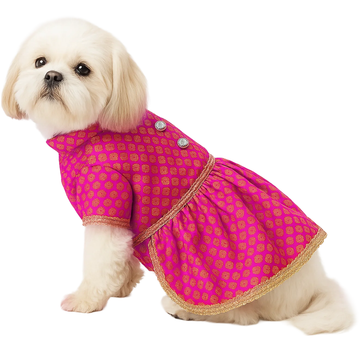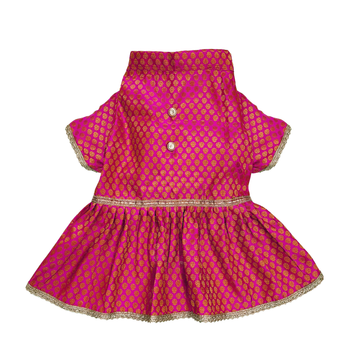Rottweiler

Rottweiler
| BreedHighlighs: |
|
A Rottweiler is of solid strength. It has a massive powerful body, and substantial build. The Rottweiler is an intelligent fearless dog breed developed in Germany. Due to their confident, bold, alert and imposing nature Rottweiler is a popular choice for its ability to guard. It may be overly protective if it senses that its family is being threatened. They are used to search and rescue operations. They are also used for police work. This pre-dominant breed that needs socialization consistent training and regular activity to be the best it can be. |
| Weight: |
|
Male: 43-59kg Female: 63-69kg |
| Height: |
|
Male: 61-69cm Female: 53-63cm |
| Life Expectancy: |
|
Average life expectancy of rottweilers is about 9 years |
| Litter Size: |
|
4-12 |
| Breed Appearance: |
|
Rottweilers are powerful dogs with athletic, muscular bodies and large, broad heads. They are slightly longer than they are tall, with a level topline. The ears are pendant and triangular; the nose black and wide. The lips are also black, as is the inside of the mouth. The eyes are deep set, almond-shaped and dark brown. Teeth should meet in a scissors bite. The tail is customarily docked and dewclaws removed. The short, black coat is highlighted with clearly defined markings over the eyes, on the cheeks, chest, lower legs and under the tail. |
| History: |
|
Rottweilers descend from the Molossus, a mastiff-type dog. Their ancestors marched to Germany with the Romans, driving the cattle that sustained them as they conquered the known world. As the army traveled, the big dogs mated with dogs that were native to the areas they passed through and laid the foundation for new breeds.They were originally used for activities like cattle herding, bear hunting, pulling carts, guarding properties. Currently rottweilers are used as gaurd dogs , police dogs, guide dog for diabled and therapy dog. |
| Personality: |
|
The ideal Rottweiler is calm, confident, and courageous, never shy. He has a self-assured aloofness and doesn't make friends with people immediately or indiscriminately. Instead, he takes a wait-and-see attitude with new people or situations. With his family, he's affectionate, often following them around the house. This is not a highly excitable dog. |
| Training: |
|
rottweilers are very intelligent dogs and are equally easy to train. They need to start socializing as early as possible. They should be provided with firm and consistent training to get valid results. It is importat to inculcate leadership roles as early as possible |
| Health&Care: |
|
The average life span of the Rottweiler is 10 to 12 years. Breed health concerns may include allergies, cranial cruciate ligament injury, bloat, cancer, elbow and hip dysplasia, epilepsy, congenital deafness, entropion, distichiasis, medial canthal pocket syndrome, iris cysts, progressive retinal atrophy, subaortic stenosis, follicular lipidosis, mucocutaneous hypopigmentation (on the lips and nose), parvoviral infection, eosinophilic gastroenteritis, enteritis and enterocolitis, hypothyroidism, osteochondrosis dissecans (OCD), paneosteitis andvon Willebrand disease |
| Living Condition: |
|
Rotweilers are inactive indoors. Suitable for living in small spaces , such as an apartment if sufficiently excercised. |
| Excersie: |
|
While going on walks is vital for your rottweiler, there are other ways you can exercise him in addition to taking hikes. Playing fetch in the yard is a good way of working off some extra energy and is essential if your dog can't run off the lead while on his walks. You might also want to take part in sort kind of activity, such as agility or heel-work to music, which will give your canine companion some exercise, while also teaching him obedience skills. |
| Grooming: |
|
Brush the Rottweiler on a weekly basis to remove loose hair and distribute natural skin oils to help keep the coat shiny and healthy. Twice a year the Rottweiler will shed heavily, and brushing may need to occur two or three times per week, or daily depending on the individual. Bathe only as needed.Check the ears on a regular basis for signs of wax buildup, irritation or infection. Clean the ears with a cotton ball and a veterinarian-approved cleanser; never use a cotton swab in a dog's ear canal. Teeth should be brushed on a weekly basis to prevent tartar buildup, promote gum health and keep bad breath at bay. Trim nails monthly if the dog does not wear the toenails down naturally outdoors. |
| Pros: |
|
The Rottweiler is courageous, loyal, protective and devoted to their family and will protect it fiercely. Although powerful they are very intelligent, calm and trainable. The Rottie has proved itself in police and military work through the centuries and has even been trained for obedience competition. |
| Cons: |
|
The Rottweiler is courageous, loyal, protective and devoted to their family and will protect it fiercely. Although powerful they are very intelligent, calm and trainable. The Rottie has proved itself in police and military work through the centuries and has even been trained for obedience competition. |












